Allergic Fungal Sinusitis Treatment
Allergic fungal sinusitis treatment. Antifungal medications can be used as well but usually not without a surgery. The medical management may include topical and systemic steroids anti-fungal agents and immunotherapy. All patients were treated with functional endoscopic sinus surgery with removal of fungal debris.
Recurrence of AFS is not uncommon and patients may require additional surgeries. Steroids may be given before and after the surgery. Allergic fungal sinusitis is a new allergic disorder with recognizable clinical and histopathologic findings.
Noninvasive fungal rhinosinusitis includes fungal ball sinus mycetoma and allergic fungal sinusitis. For allergic fungal sinusitis systemic corticosteroids like prednisolone methylprednisolone are added for their anti-inflammatory effect bronchodilators and expectorants help to clear secretions in the sinuses. These changes have involved the medical and surgical arms of therapy.
Treatment requires aggressive allergy management postoperative OCS monitoring of total serum IgE and medicalsurgical co-management. Allergic Fungal Sinusitis Treatment. These are NOT cancerous even though they are described as tumours.
Oral steroids and antibiotics can provide temporary relief of symptoms but a long-term care plan is necessary to prevent allergic fungal sinusitis from coming back. Although Allergic Fungal Sinusitis AFS was first described in the early 1980s the most appropriate evaluation and long term treatment methods remain elusive. Antibiotics may be needed to address any secondary bacterial infections.
Allergic fungal rhinosinusitis is usually diagnosed using blood tests to detect antibodies to the fungus CT scan endoscopy and culture of samples taken from the sinus. Unfortunately sinusitis treatment when from a fungal source is very different from well known sinus infection remedies. Allergic fungal sinusitis is not only difficult to diagnose but it is one of the most complicated conditions rhinologists must manage.
This innovative minimally invasive technique uses the nose and nasal cavities as natural corridors to access hard-to-reach or previously inoperable tumors. Medical treatment of AFS combines using corticosteroids to decrease polyps and inflammation followed by steroid irrigations for extended periods of time after surgery to keep the sinuses healthy.
Recurrence of AFS is not uncommon and patients may require additional surgeries.
Antibiotics may be needed to address any secondary bacterial infections. Sinus mucosal resection may be curative but systemic antifungal drugs are commonly used postoperatively to assure complete resolution of fungal infection once the histopathological diagnosis is available. In fact Medscape points out that even common over the counter remedies. Most patients with allergic fungal sinusitis require endoscopic sinus surgery in conjunction with allergy testing and treatment. At UPMC the preferred surgical treatment for invasive fungal sinusitis is the Endoscopic Endonasal Approach EEA. Adjuvant therapy included nasal irrigations postoperative endoscopic cleanings and systemic corticosteroids in 9 of 10 patients. With invasive fungal sinusitis use of antifungal medications is required. This condition is usually treated with steroids and surgery. Antifungal medications can be used as well but usually not without a surgery.
There have been some studies that indicate that antifungal medications called azoles such as itraconazole can be useful in treating allergic fungal sinusitis. Treatment requires aggressive allergy management postoperative OCS monitoring of total serum IgE and medicalsurgical co-management. Allergic fungal sinusitis is a new allergic disorder with recognizable clinical and histopathologic findings. Although Allergic Fungal Sinusitis AFS was first described in the early 1980s the most appropriate evaluation and long term treatment methods remain elusive. Functional endoscopic sinus surgery is the gold standard surgical treatment for chronic rhinosinusitis 8. There have been some studies that indicate that antifungal medications called azoles such as itraconazole can be useful in treating allergic fungal sinusitis. With invasive fungal sinusitis use of antifungal medications is required.



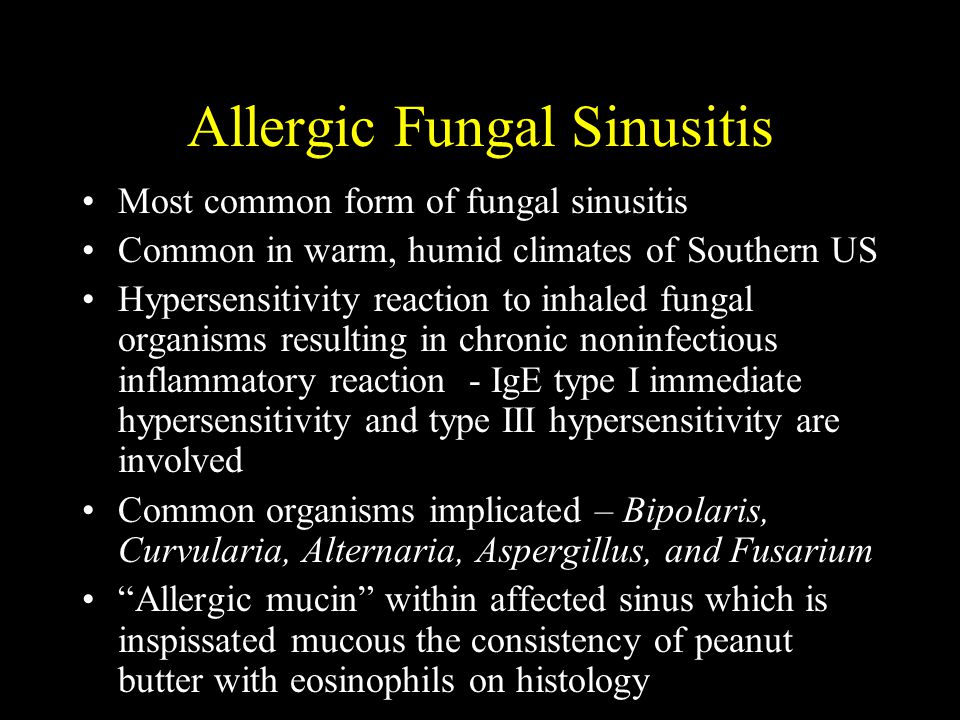












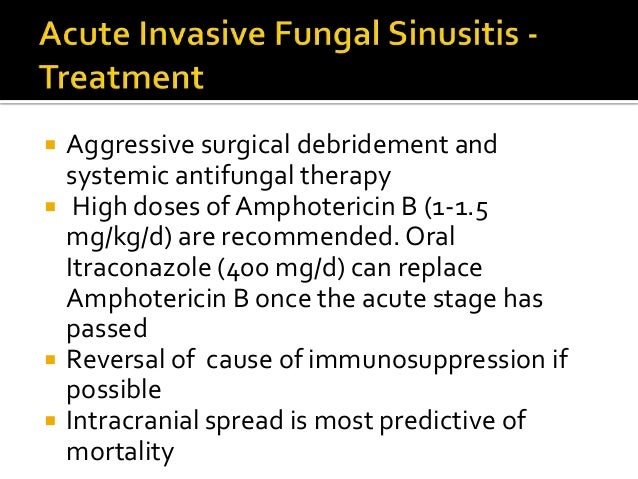


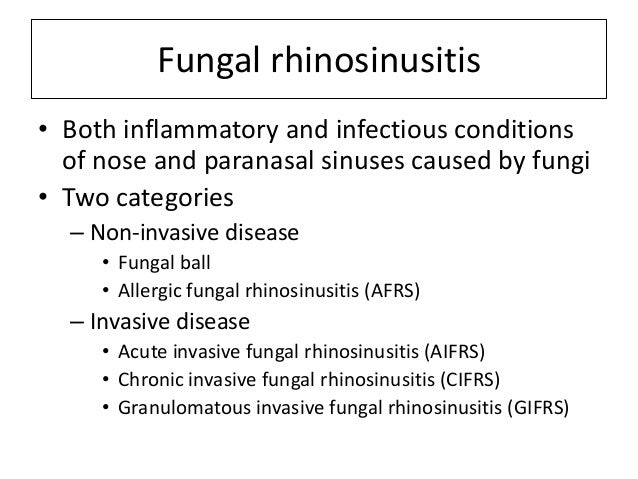



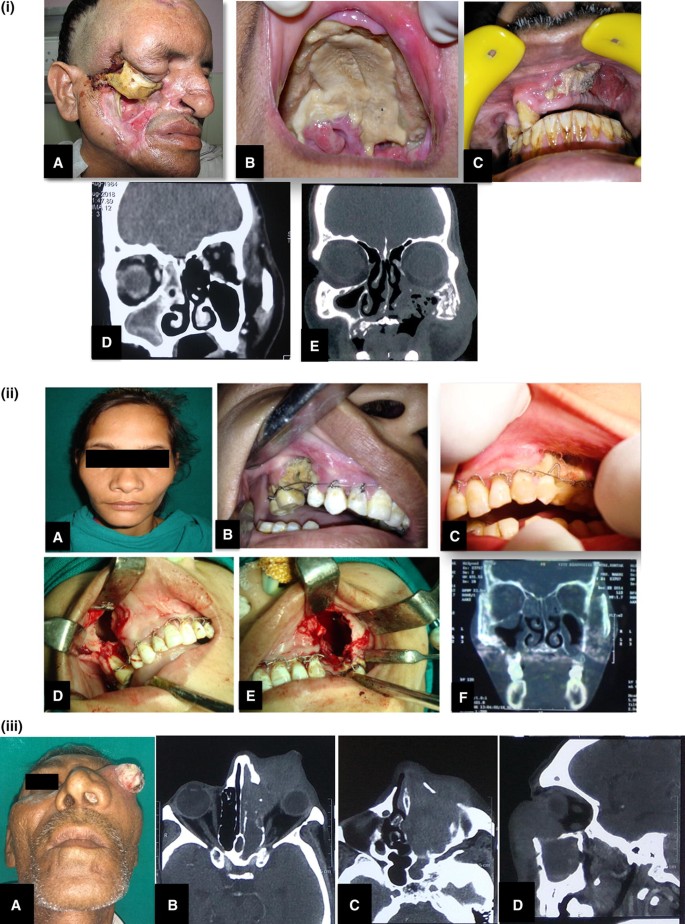
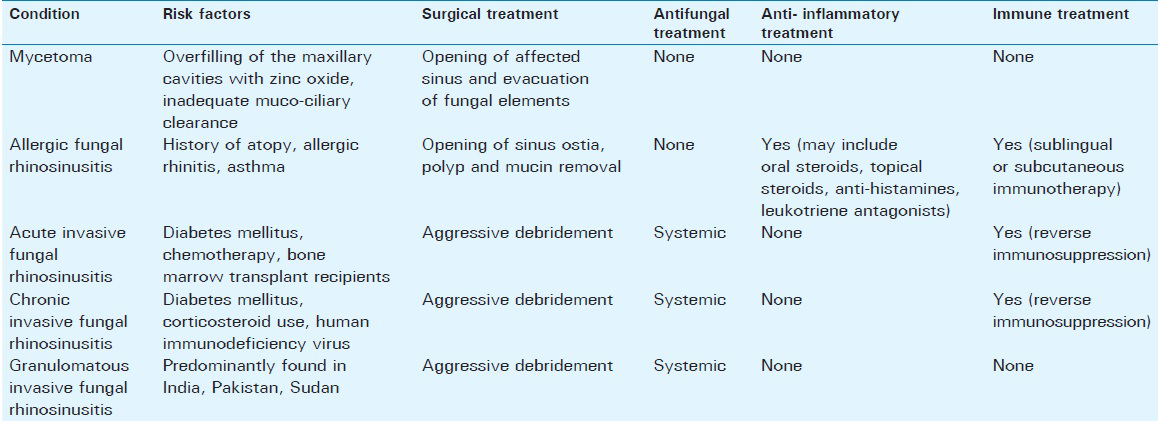
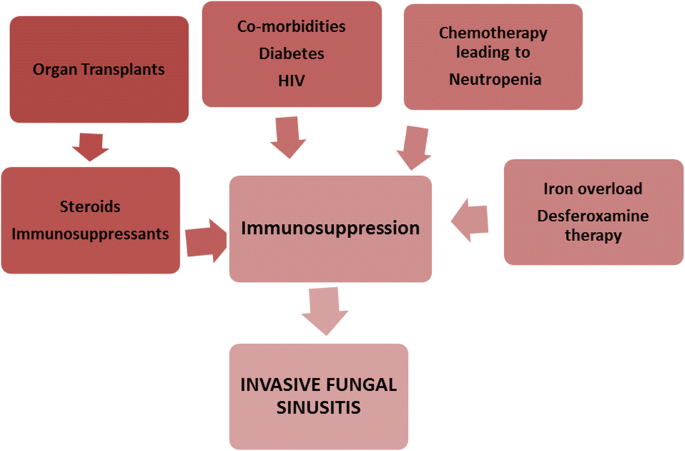
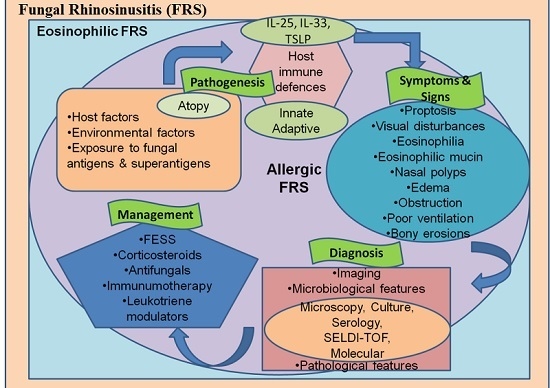

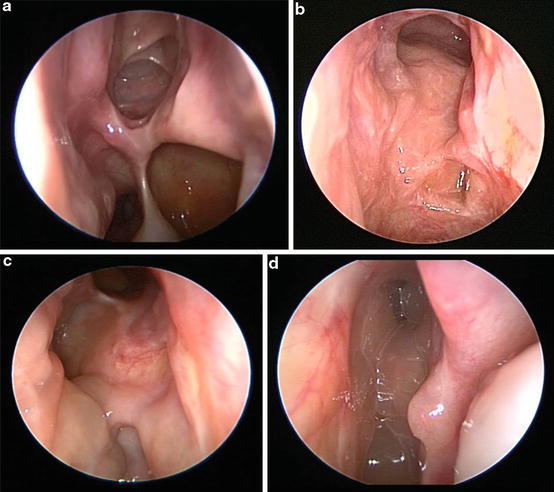






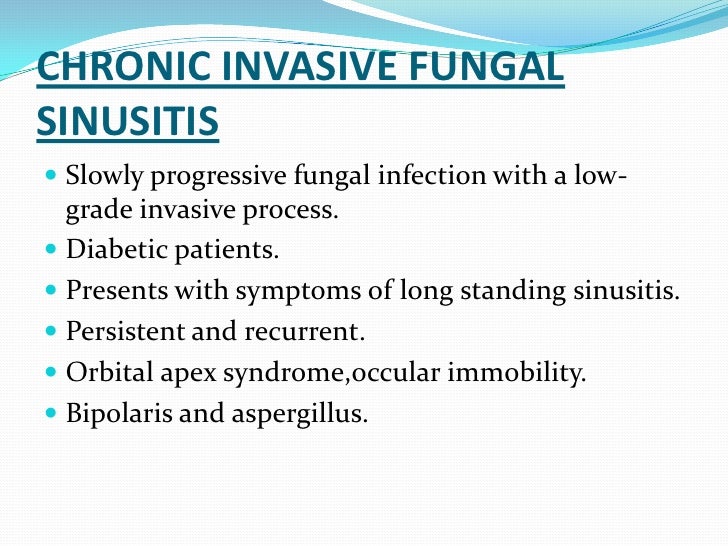







Post a Comment for "Allergic Fungal Sinusitis Treatment"